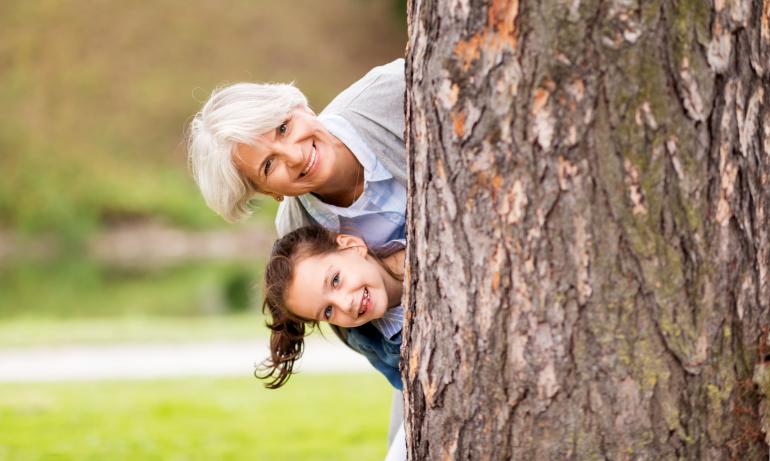
On 8 June 2023, the Assises des Familles was held, an annual day of conferences and debates on family issues in Geneva. This year's event, organised by the Association Avenir Familles, was devoted to "Grandparenting and intergenerational links: giving your time or taking your time". Some 30 professionals from the field took part in the presentation of research findings and three round-table discussions on the role of senior citizens in family support, community life and self-development. Seniors and intergenerational relations will remain at the heart of the next Assises des Familles in 2024.
Between 65 and 80 years old, seniors often provide support to their families, as well as to their networks and civil society, by carrying out important voluntary work. Danielle Jaques Walder, President of Avenir Familles, opened the Assises in honour of seniors by emphasising their major contribution to social cohesion. And they play many roles. From looking after their grandchildren to volunteering, time for oneself is sometimes lacking after a lifetime spent working.
Based on the Confederation's survey on Families and Generations (EFG), sociologists Eric Widmer and Myriam Girardin present the typical profile of grandparents involved in looking after their offspring: senior citizens with higher education, aged between 65 and 69, who look after little ones for 1 day a week (less than 8 hours). This type of 'hobby childcare' has the advantage of remaining a leisure activity for the grandparents, who do not have to take on an educational role. "This organisation is the expression of more individualistic dominant norms, which place greater value on personal fulfilment. Family ties are maintained more out of pleasure than obligation", Myriam Girardin points out. This balance seems to be invaluable to the people we interviewed, as it allows them to avoid taking the place of parents, educational constraints and over-commitment.
Although the professionals interviewed do not work with families in this way, they agree with the grandmothers interviewed and point to several benefits of looking after grandchildren: enjoyment, appreciation, distraction from boredom, motivation to keep fit - all positive elements that encourage grandparents to take on some of the caring.
Diversifying the 'retired' role
Following the research findings, professionals in the field and members of the public discussed three topics specifically dedicated to senior citizens. The round-table discussion on family support deplored the lack of social progress in 30 years in the field of childcare and reconciling family and working life.
The second round table highlighted the invaluable involvement of senior citizens in charitable associations, who are looking for personal fulfilment or fear they will run out of things to do when they retire. Two profiles of volunteers were highlighted, as well as the vital role played by charities in social cohesion. After retirement, it is more likely to be people from privileged backgrounds who get involved, whereas before retirement, we see more people from disadvantaged backgrounds seeking to integrate into the world of work through volunteering.
Finally, free time and self-development were addressed in the last discussion session. Healthy ageing remains a strong social injunction and a matter of individual responsibility. Ways out of this guilt-ridden vision are suggested. We need to adopt an integrative vision of these different factors, which takes into account the mental health of people aged 65 and over. In this way, healthy ageing becomes a societal rather than an individual issue.
Created in 2015, the Avenir Familles association aims to encourage the development of a family policy in Geneva by gathering, sharing, collecting and analysing information on families. Each year, it explores a particular area of research, which it takes up at the Assises des Familles, which brings together families, professionals and associations working in this area (childhood, adolescence, adults, families, seniors). Assises des Familles is organised with the support of the University of Geneva and Centre LIVES.

